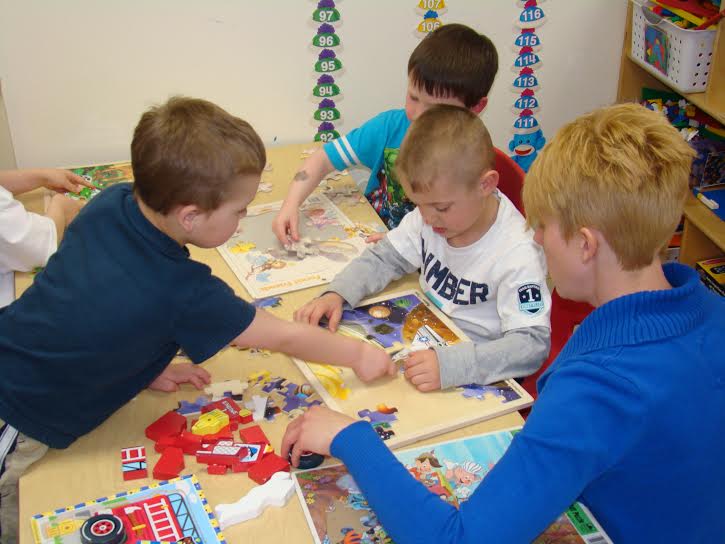Editorial: Public should be informed about child care issues
Courtesy of Melissa Vobr
Iowa State is offering a new staff orientation program to give professional development to child care center staff, directors and supervisors all over the state of Iowa.
December 5, 2018
The Graduate and Professional Student Senate (GPSS) has made it a priority this semester to advocate for affordable child care, a necessity among many of Iowa State’s graduate students.
In previous meetings, GPSS president Norin Yasin Chaudhry has emphasized the necessity of finding solutions to this issue, regarding Iowa as a “child care drought area.”
Behind the scenes, however, Chaudhry is leading the discussions on child care for graduate students that is both affordable and accessible with campus administrators.
A barrier? The reality of child care at Iowa State and Ames for graduate students (and faculty members) lags statistics. This makes it difficult to find a solution when the complexity and reach of the problem is not yet known.
Currently, graduate students are given surveys in order to try and find out how many children may need child care services. However, these methods are not perfect and often result in general estimates rather than results.
It is commendable of GPSS to be undertaking the issue of child care services for graduate students this semester. It is an issue that many, unless directly impacted by it, are likely unaware of. It is also an issue that is not being talked about enough, including by the Iowa State Daily.
Julie Graden, the program manager for the Iowa State Child Care and Family Resource Services, told the Iowa State Daily that child care for graduate students (and faculty members) is not a new problem but rather multi-generational.
Even though President Wendy Wintersteen will be taking action to hopefully assemble a group of people to meet and talk about solutions to child care, the general public is more than likely blind to these issues. Child care, when unavailable, can impact that family greatly. The public has a right to know about the issues or solutions being discussed when it comes to the care of their children.
Along with that, without proper child care, many families will have to choose between education, their jobs and their children. Often times, this can pause undergraduates and graduates goals for graduation or put them in a tough spot financially.
With an undergraduate population of approximately 36,000, it should be pertinent for all students to see child care as an issue impacting this university as the issue has a wide reach. If graduate students and faculty members do not have accessible and affordable child care, it makes it more difficult for them to be at their best in the classroom and on campus — especially if worried about the safety of their family.







